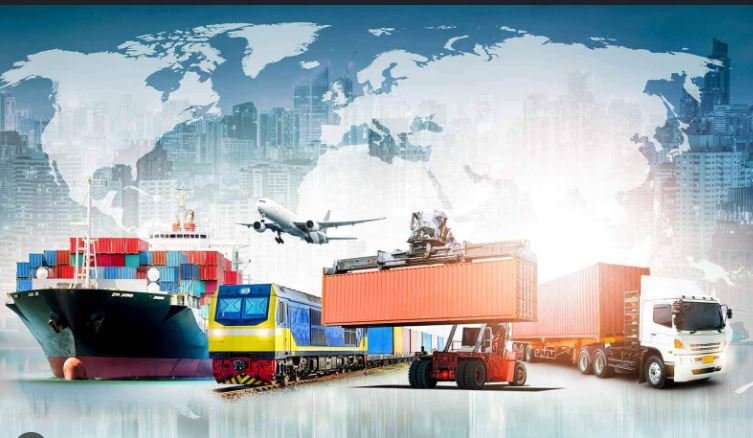The role of logistics in global transportation is fundamental to the smooth movement of goods across borders, continents, and oceans. Logistics, as an essential part of the supply chain, ensures that products reach their destinations efficiently and in a timely manner. With globalization driving international trade, logistics has become a vital player in sustaining economies and enabling businesses to compete globally. From warehousing and inventory management to transportation and distribution, logistics is the backbone of global commerce.
Streamlining Global Supply Chains
One of the primary roles of logistics in global transportation is to streamline supply chains, which connect manufacturers, suppliers, and consumers worldwide. A well-organized logistics system ensures that raw materials, components, and finished products are transported seamlessly between different locations. This is particularly important for industries like electronics, automotive, and retail, where multiple suppliers and manufacturers may be involved across various countries.
By managing transportation routes, coordinating shipments, and handling customs regulations, logistics companies help businesses optimize their supply chains. These efforts reduce costs, minimize delays, and enhance overall efficiency. Without effective logistics, global transportation networks would face significant challenges in maintaining the flow of goods and meeting market demands.
Warehousing and Inventory Management
In global transportation, logistics plays a crucial role in warehousing and inventory management. Proper inventory control is essential for ensuring that businesses have enough stock to meet customer demand while avoiding excess storage costs. Logistics providers offer warehousing solutions that help companies store their products in strategic locations, closer to key markets, enabling faster and more reliable deliveries.
In addition to storage, logistics companies implement advanced inventory management systems to monitor stock levels in real-time. This allows businesses to manage their supply chains more effectively, reducing the risk of stockouts or overproduction. Furthermore, logistics providers ensure that the right products are delivered to the right destinations, helping businesses meet delivery deadlines and maintain customer satisfaction.
Transportation Modes and Multimodal Solutions
Logistics is responsible for selecting the most suitable transportation modes for global shipments. Depending on factors like distance, cost, and speed, logistics companies choose between air, sea, rail, or road transportation to deliver goods. For international shipments, logistics providers often utilize multimodal solutions, which involve combining different modes of transportation to optimize efficiency.
For instance, goods might be shipped by sea to a major port and then transferred to trucks for final delivery. In other cases, rail transport might be used for long-distance inland routes. This flexibility in choosing transportation modes allows logistics companies to balance speed and cost, ensuring that goods are transported in the most efficient and cost-effective manner.

Handling Customs and Regulatory Compliance
Another critical role of logistics in global transportation is handling customs and regulatory compliance. Each country has its own set of import and export regulations, which can be complex and time-consuming to navigate. Logistics companies manage the documentation, tariffs, duties, and inspections required for goods to pass through customs smoothly.
By staying up-to-date with international trade laws and customs regulations, logistics providers help businesses avoid costly delays and fines. They also ensure that shipments are properly classified, labeled, and documented to meet regulatory requirements. This expertise in customs compliance allows businesses to expand their operations into new markets without facing unnecessary obstacles.
The Importance of Technology in Logistics
In today’s digital age, technology plays a significant role in improving the efficiency of logistics in global transportation. Logistics companies leverage advanced technologies like GPS tracking, blockchain, and data analytics to streamline operations and enhance transparency. For example, real-time tracking systems enable companies to monitor the location and status of their shipments, providing greater visibility and reducing the risk of delays.
Additionally, technology allows logistics providers to optimize transportation routes, reducing fuel consumption and minimizing environmental impact. Automation and artificial intelligence (AI) are also being used to improve warehouse management, order processing, and demand forecasting. These innovations are driving logistics toward greater accuracy, speed, and sustainability in global transportation.
Sustainability and Environmental Impact
Sustainability is an increasingly important consideration in global transportation, and logistics plays a key role in reducing the environmental impact of shipping. Logistics providers are adopting greener practices, such as using electric vehicles, optimizing routes to minimize fuel consumption, and investing in energy-efficient warehouses. Additionally, logistics companies are exploring alternative transportation modes, such as rail and sea, which have lower carbon emissions compared to air freight.
By prioritizing sustainability, logistics providers contribute to reducing the overall environmental footprint of global transportation. This shift towards eco-friendly practices also aligns with the growing demand from consumers and businesses for more sustainable supply chains.
Conclusion
The role of logistics in global transportation cannot be overstated. As a critical component of the supply chain, logistics ensures the efficient movement of goods across borders, facilitates international trade, and helps businesses compete in the global market. From managing transportation modes and warehousing to handling customs compliance and embracing new technologies, logistics providers play a pivotal role in keeping the world connected. As the global economy continues to evolve, the importance of logistics in sustaining international commerce will only grow.



